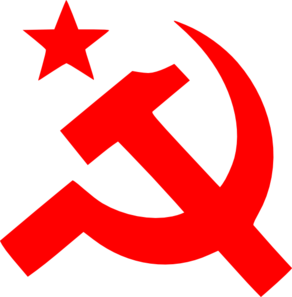
ANURA Kumara Dissanayake, leader of the Janata Vimukti Perumana (JVP) and the National Peoples’ Power (an alliance of Left and progressive parties) won the presidential elections held on September 21 in Sri Lanka. He polled 57,40,179 votes (42.3 per cent) in these elections, which is a significant increase from the 4,18,553 votes (3.16 per cent) he could obtain in 2019. This is a historic victory, as, for the first time, a Left leader won the presidency in Sri Lanka.
The surge in the support and the victory of Dissanayake is a direct result of his party’s involvement in the massive popular struggle, Aragalaya that shook the country in 2022. People were fed up with institutionalised political corruption and scarcity of essential commodities like fuel and gas. They came out in protest against the then president Gotabaya Rajapaksa led government. Disastrous economic policies implemented since the last seven decades led to farmers’ distress, rising inflation, unemployment and falling living standards. The pent up anger burst through these protests. President Rajapaksa was forced to resign and flee. In an attempt to keep the office of power between the two main ruling class parties, Ranil Wickremesinghe, completely dependent on the support of the Rajapaksas’ was sworn in.
Wickremesinghe failed to salvage the situation as he was not willing to address the systemic issues that confronted the country. He negotiated a loan with the IMF, accepting many of its stringent conditions. He failed to tackle the menace of corruption. Instead of resolving the situation, his policies further burdened people. Inequalities increased with the richest 20 per cent of the country owning about a half of the country’s income, while the share of the lowest 20 per cent is only about 5 per cent. People were thoroughly unhappy as the government tried to suppress any dissent against its failures by using force. It had passed laws such as the Online Safety Act and the Anti-terrorism Act, which curtailed democratic rights and freedom.
Presidential elections were held in this background. Election campaign of all the parties revolved around how to revive the economy. The campaign of the NPP and Dissanayake was able to capture popular imagination because they addressed the main issues confronting the people. The election manifesto of Dissanayake prioritised reforming the economy. It also promised to bring about policy changes to promote equality by addressing the burgeoning inequalities, ensure that all citizens have access to basic services and opportunities. This includes reforming the education system and healthcare by correcting their structural limitations.
The manifesto also emphasised on the welfare and governmental support for the upliftment of the marginalised and disadvantaged communities. It talked about the issues affecting the linguistic and religious minorities and promised to address them. Tamils have been demanding devolution of power and reconciliation since the end of the civil war in 2009. Successive governments have failed to keep their promise on both counts, leading to a sense of unease among the minorities. NPP has promised that provincial elections will be held immediately (last held a decade back, in 2013) and that a new constitution would address their concerns.
In the political sphere, Dissanayake promised to immediately act to abolish executive presidency, which was in vogue since 1978. He also vouched for the immediate dissolution of the parliament and elections for a new parliament. He promised to ‘radically root out the culture of corruption and racism’; bring reforms to ensure accountability and end the culture of impunity plaguing the system. These promises won peoples’ approval.
The 2022 struggle exposed the limitations of the two major ruling parties and people were fed up with them. They felt that traditional political parties could no longer be trusted to bring them out of the economic and political malaise. They were looking for an alternative and the JVP/NPP emerged as that alternative. The fact that they were actively involved in the struggle and also enjoyed a reputation of being clean and honest in politics, helped them.
Now after the electoral victory, huge challenges await Dissanayake and his alliance. An immediate concern for him would be to tackle the IMF loan. He had promised to renegotiate the terms and conditions and ensure that peoples’ welfare would not be compromised. Related with this is the issue of various international treaties and reworking the relations with various countries, particularly immediate neighbours and countries in the region. Given the strategic location of Sri Lanka in the Indian Ocean and the US efforts to patrol these waters, this would be a challenging task. Asserting its independent foreign policy and strengthening multipolarity by playing its due role as a member of SAARC and NAM would be in the best interests of the people.
Another major challenge would be the government’s approach towards the minorities. The fact of the matter is that Dissanayake has won only a minority of the Tamil vote. This shows lurking apprehensions about his party’s approach towards the minorities, particularly Tamils. War and economic backwardness have alienated large sections of the minorities and Dissanayake has a responsibility to heal these wounds. How to devolve powers to the Tamil speaking areas of the North and East is the question.
People have voted for Dissanayake and the NPP yearning for a change, trusting their honesty and the freshness they have brought into the campaign. Now it is the turn of the victors to live up to their promises and meet peoples’ aspirations. We wish Dissanayake and the JVP all the very best and sincerely hope that they bring about the promised change and strengthen the Left.
Dissanayake’s victory goes a long way in bringing back the belief that electoral victories against ruling class parties can be achieved only through participation and leading struggles.
(September 25, 2024)


